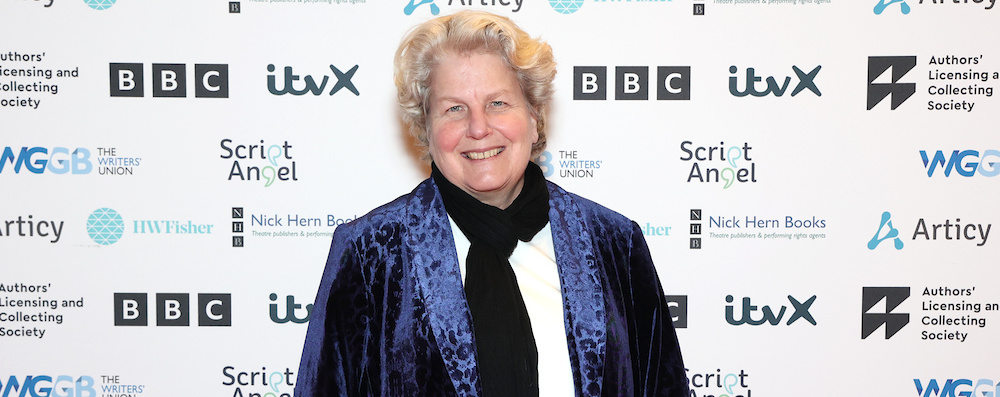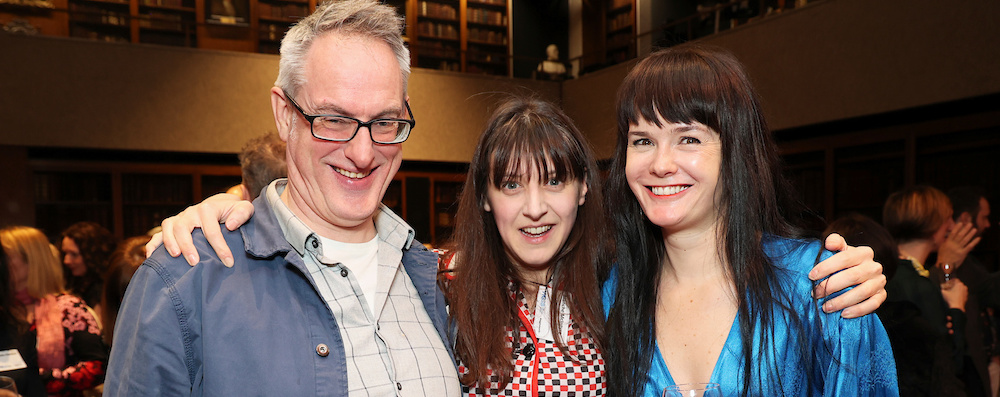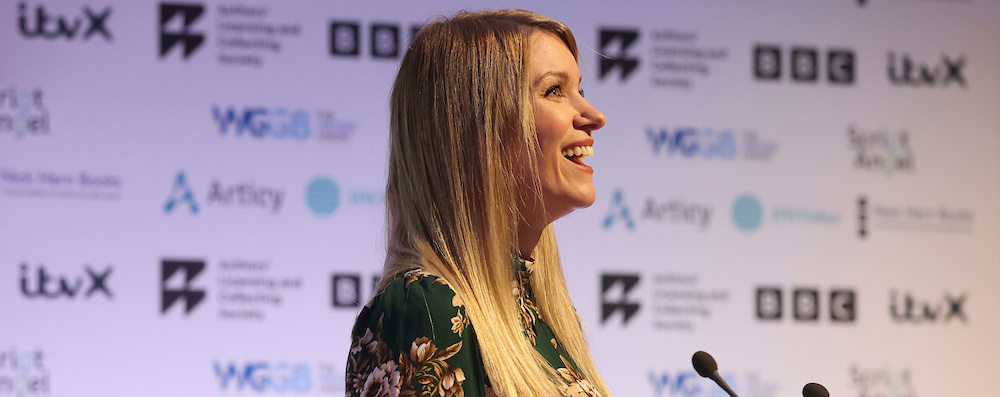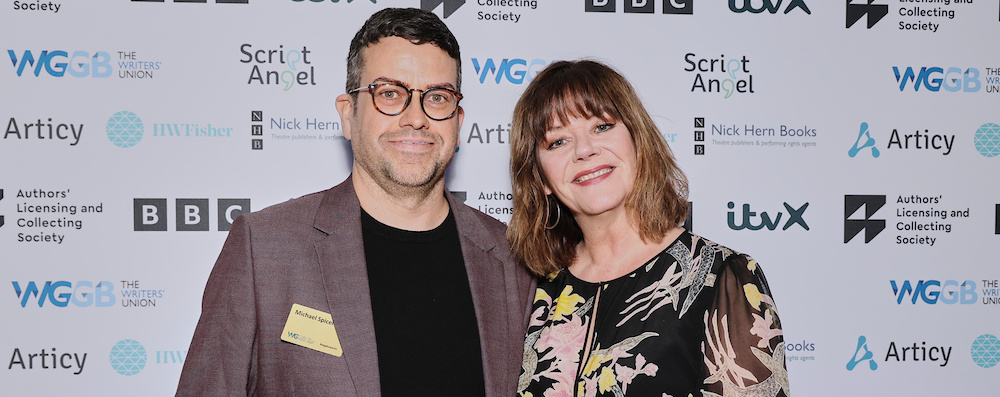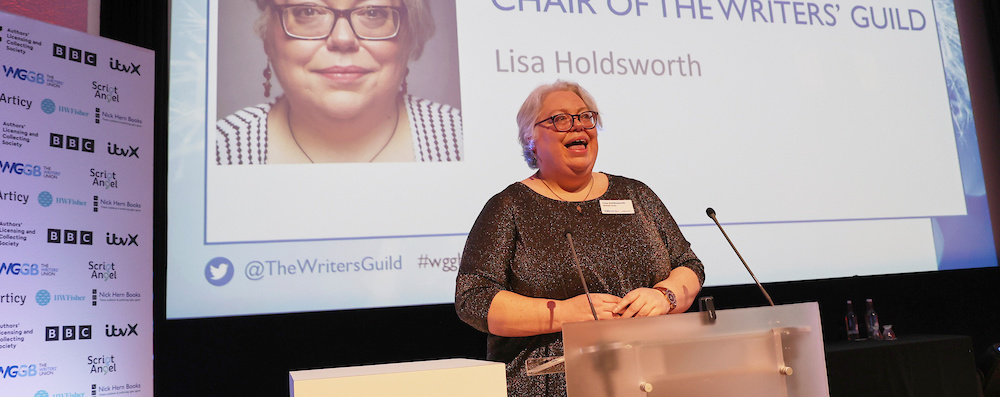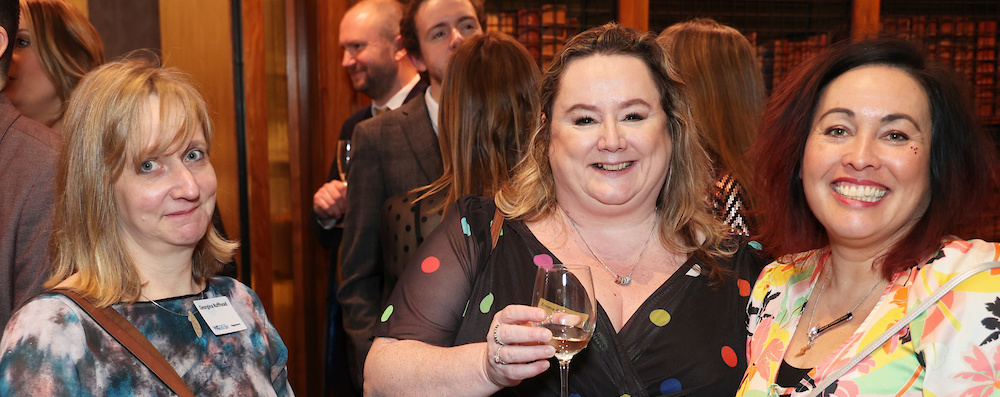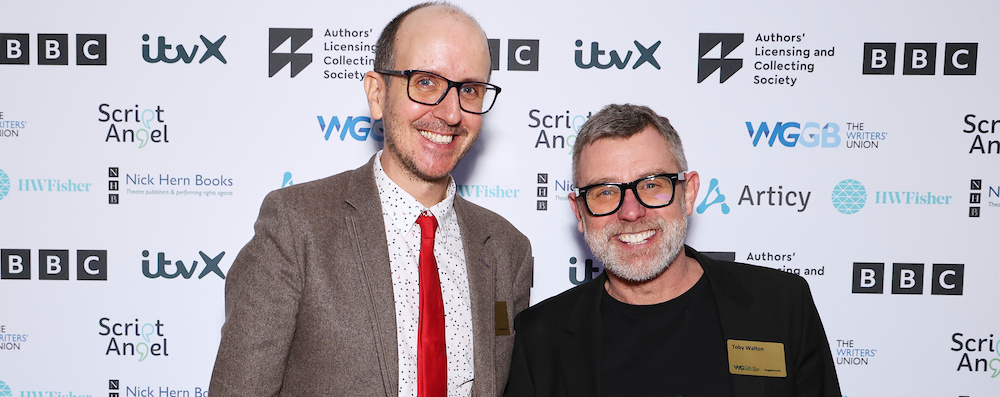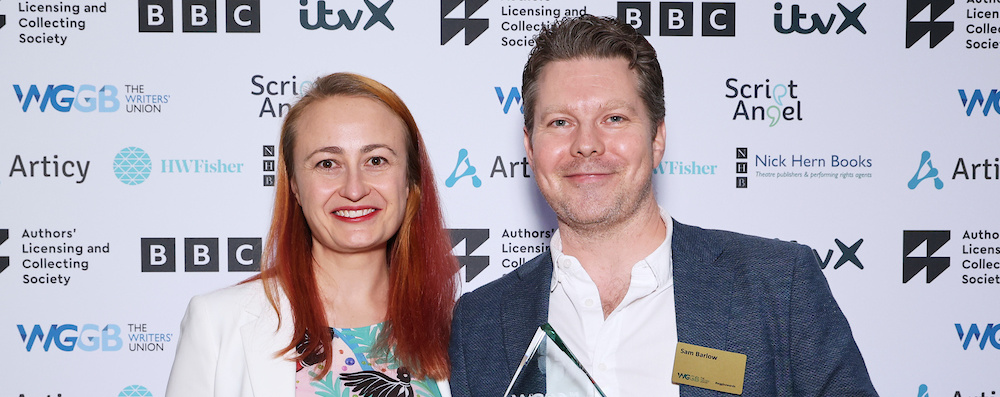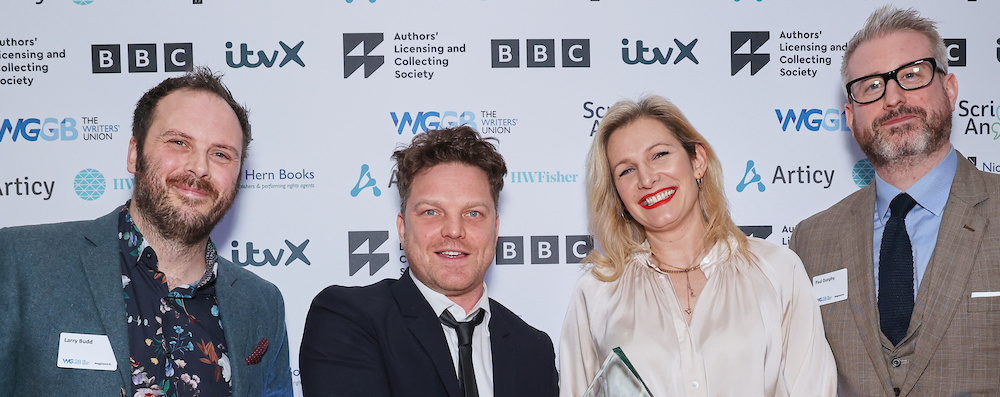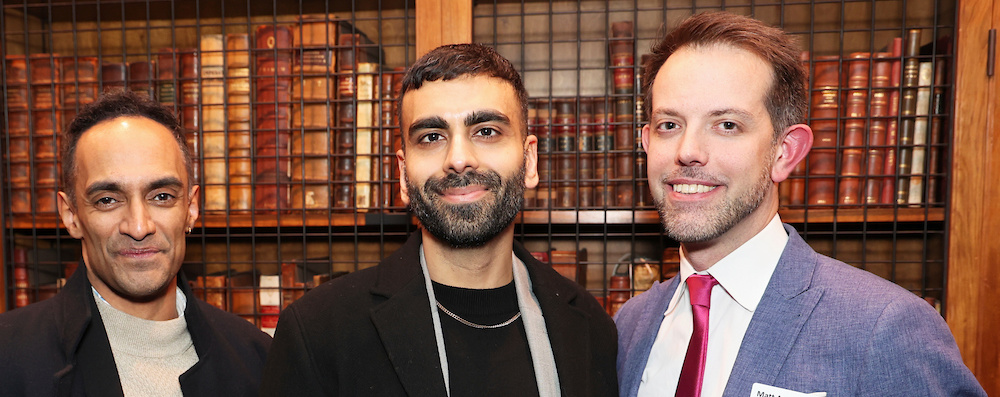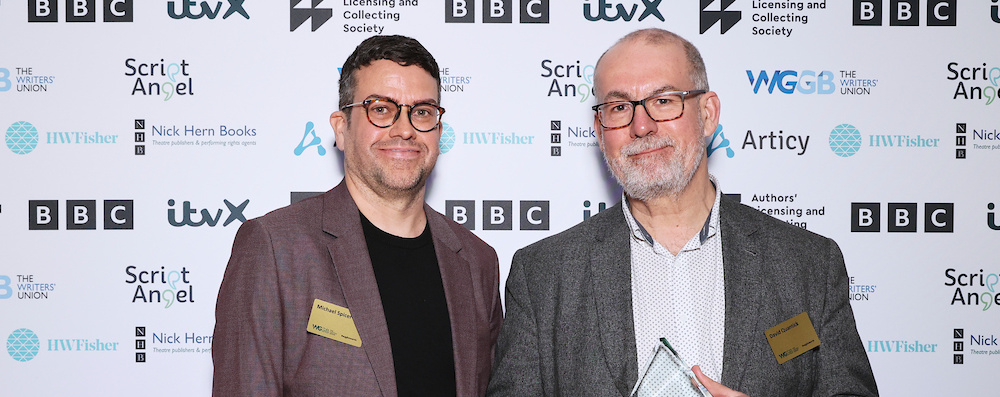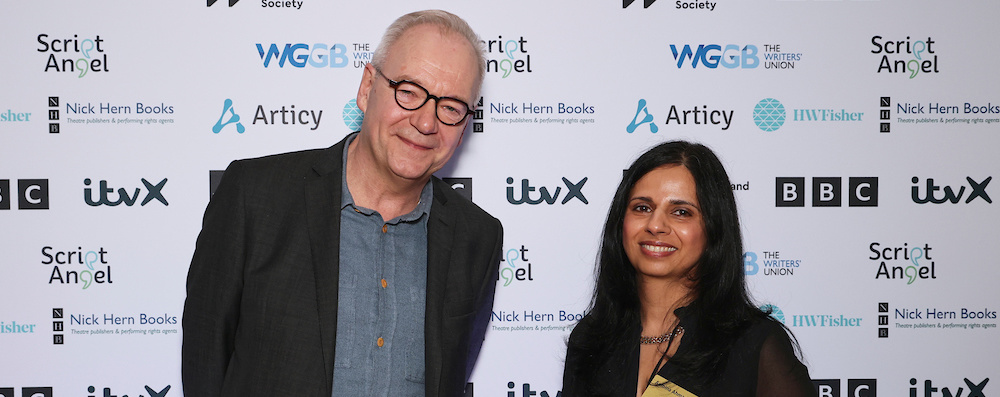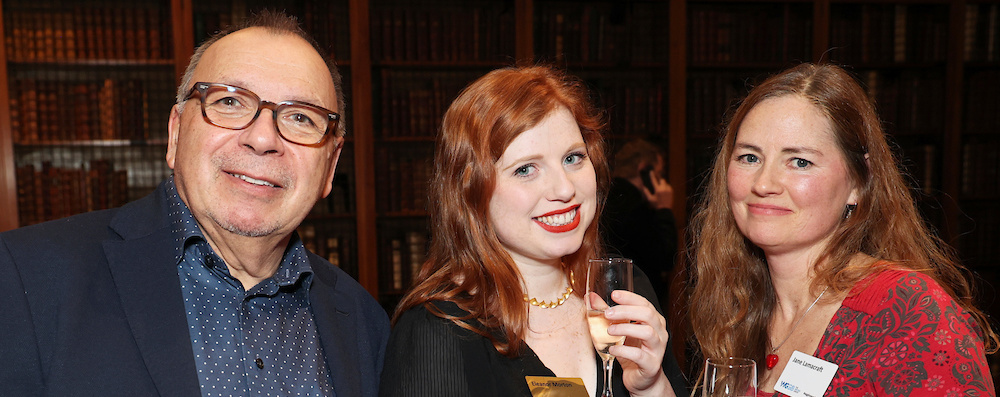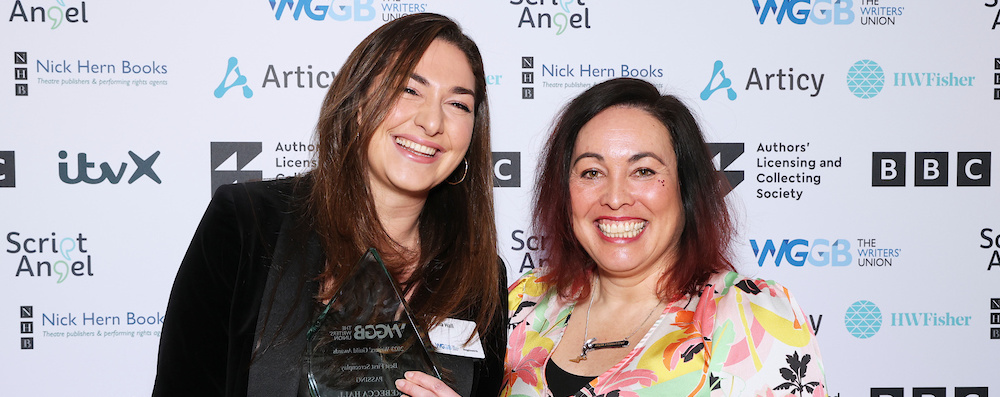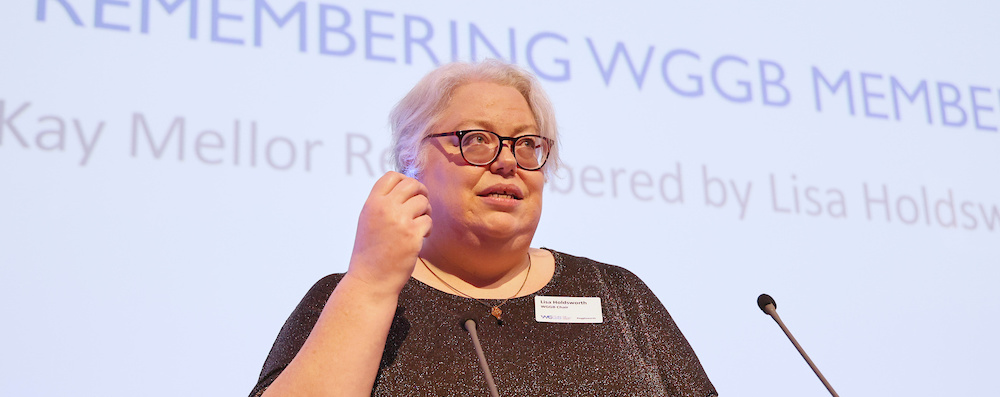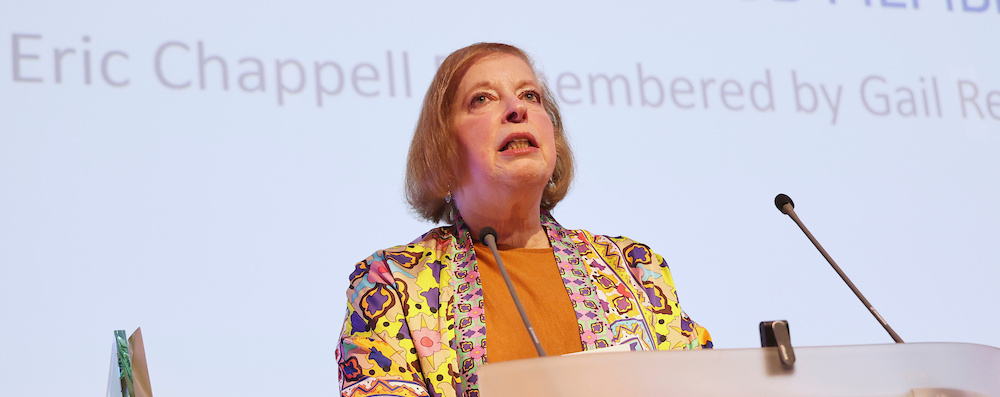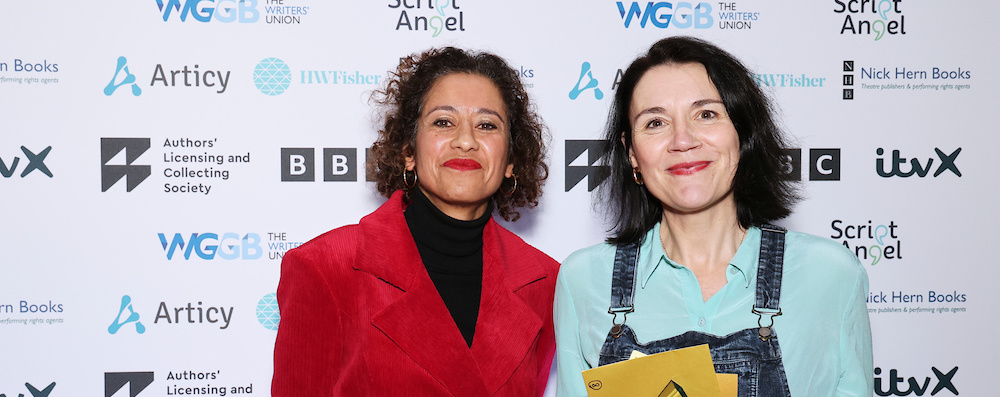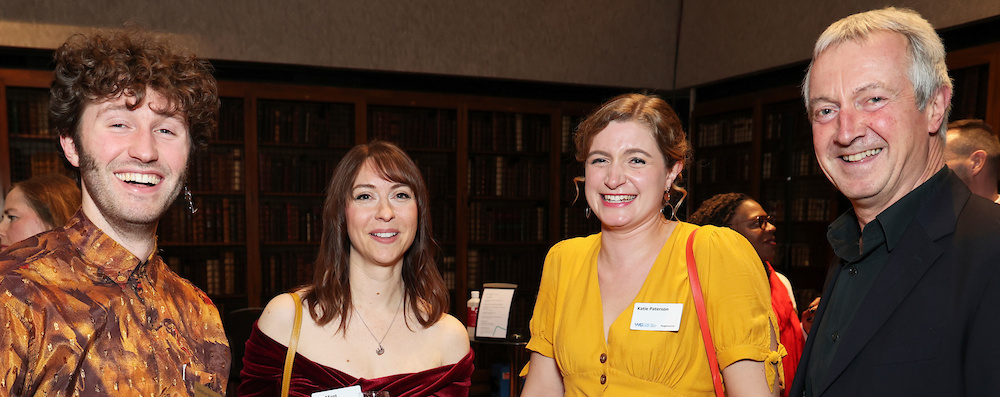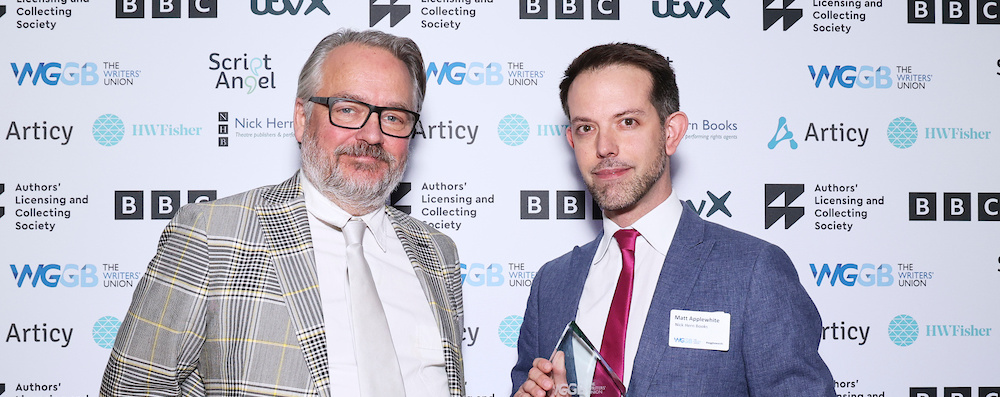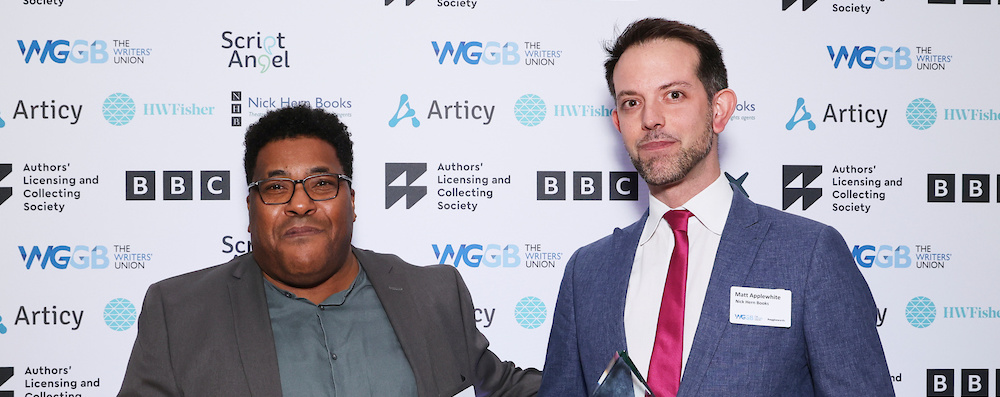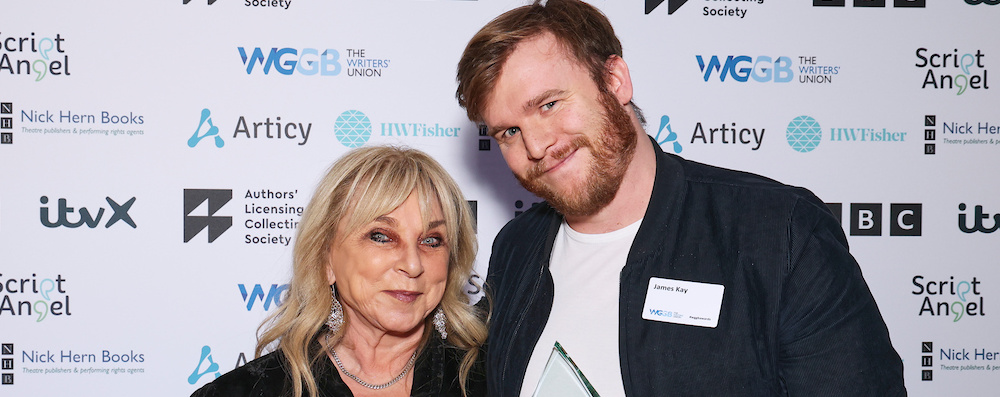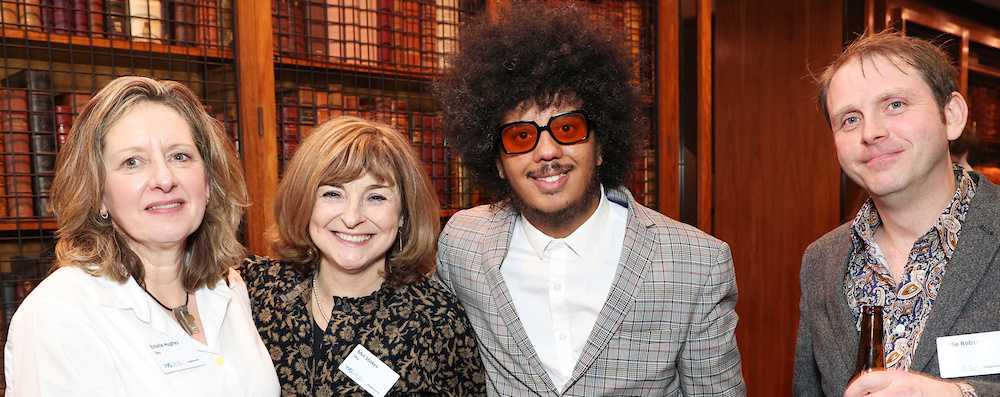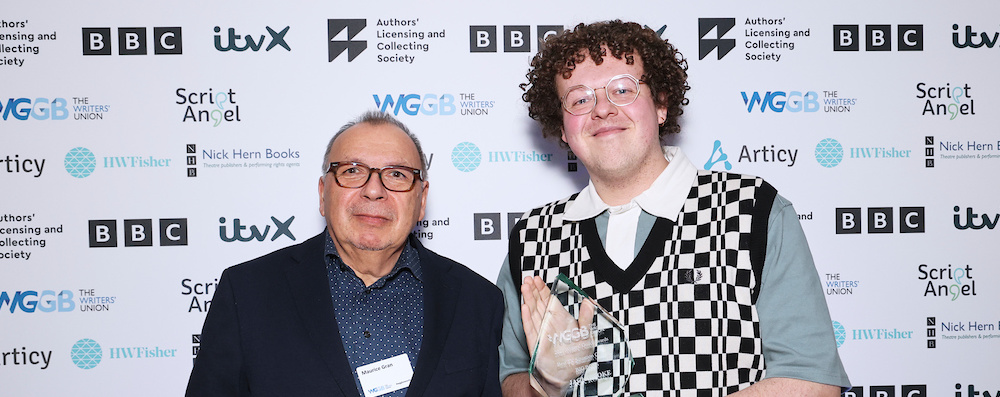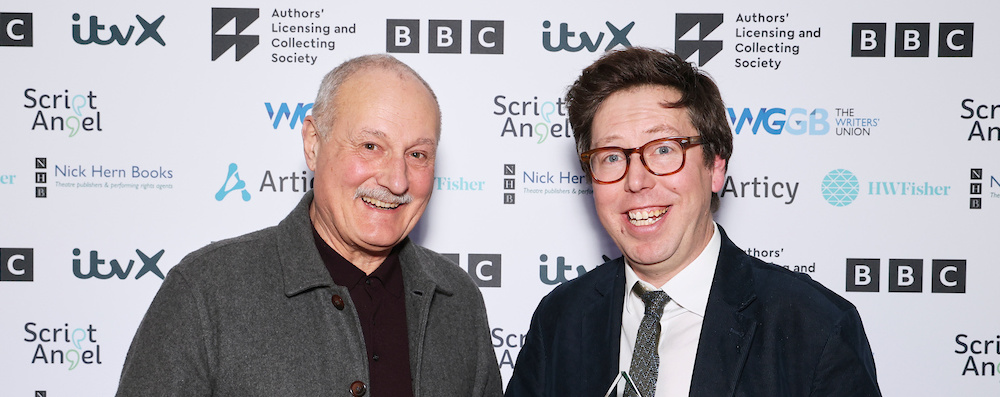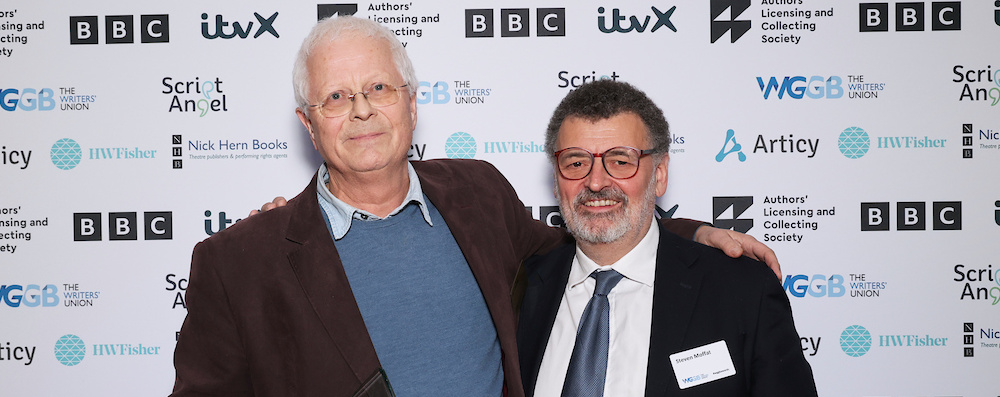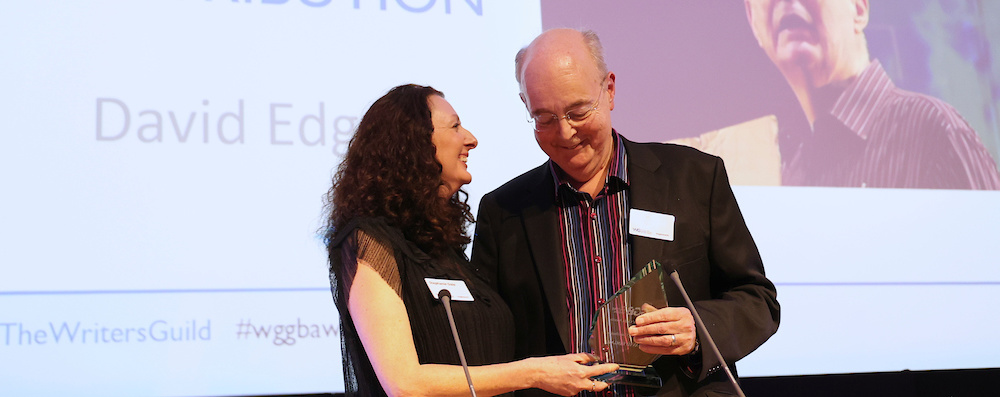Writers behind some of the most critically acclaimed works over the last year were honoured at the Writers’ Guild of Great Britain Awards 2023 ceremony, including Aamina Ahmad, David Edgar, Vivienne Franzmann, Rebecca Hall, Katie Hims, Adam Kay, Neil McKay and Ben Power.
The winners were announced for the prestigious awards across 15 categories in film, television, radio, theatre, comedy, books, and videogames, at a ceremony which took place on the evening of Monday 16 January 2023 at the Royal College of Physicians in London, hosted by comedian, writer, musician, actor and presenter, Rachel Parris.
Playwright David Edgar was presented with the Outstanding Contribution Award, by fellow dramatist and his wife Stephanie Dale with whom he has co-written two plays, including A Time to Keep, a community play for Dorchester.
David Edgar is a multi-award-winning playwright who has had more than 60 of his plays performed on stage, radio, and television around the world, making him one of the most prolific dramatists in the UK, with 37 of his plays having been published. He is an honorary associate artist of the Royal Shakespeare Company and has had more plays premiered at the RSC than any other playwright. In 1989 he founded the University of Birmingham’s MA in Playwriting Studies, Britain’s first postgraduate playwriting course, and was later appointed Professor of Playwriting Studies in 1995.
A passionate supporter and champion of new writing, David was architect of WGGB’s landmark New Play Commission Scheme, launched last year and designed to respond to the decline in new play commissions as a result of the Covid-19 pandemic, which had a severe impact on the theatre sector, and playwrights working within it. The scheme has enabled 18 playwrights to be commissioned to write new plays. He also served as President of the Writers’ Guild of Great Britain from 2007-2013.
The award honours David’s outstanding contribution to British playwriting, to his four decades of service to playwrights (at WGGB and Theatre Writers’ Union before that), and the instrumental role he played in the WGGB’s crisis response in theatre during the pandemic, including the New Play Commission Scheme and a ground-breaking set of principles governing digital streaming of stage plays.
On receiving his Outstanding Contribution Award David Edgar said: “I believe that every professional writer should be a member of the Writers’ Guild, and I’ve been one for 40 years. Like most playwrights, I couldn’t have sustained a career in the theatre without the terms and conditions we’ve negotiated for all playwrights, which I believe are the best in the world. It’s a huge privilege to be honoured by my union for my work as an activist and as a playwright.”
Rebecca Hall won Best First Screenplay, presented to her by Emma Ko, for her black-and-white romantic drama film Passing, based on the 1929 novel of the same name by Nella Larsen; her award was collected by her sister Emma Hall. The award for Best Screenplay went to Ben Power for his German-British period spy thriller Munich – The Edge of War based on the 2017 novel Munich by Robert Harris, handed to him by fellow screenwriter and and director Tony Grisoni.
Steven Moffat presented Neil McKay with the Best Short Form TV Drama accolade for his television serial Four Lives, which follows the true story of the families of four young gay men who in 2014 and 2015 were murdered by Stephen Port. Best Long Form TV Drama went to Adam Kay for This is Going to Hurt, a BBC medical comedy-drama based on his memoirs by the same name, starring Ben Whishaw as Kay; the award was presented by Helen Lederer and collected on his behalf by James Kay.
Ross Willis won Best Play for Wonder Boy, presented by fellow playwright Roy Williams, and collected on his behalf by Matt Applewhite of Nick Hern Books, while the Best Play for Young Audiences award went to Vivienne Franzmann for The IT, a darkly comic state-of-the-nation play exploring adolescent mental health and the rage within. The award was presented by Charlie Higson and collected on Vivienne’s behalf by Matt Applewhite.
Maurice Gran presented Jack Rooke with the award for Best TV Situation Comedy for Big Boys about two mismatched boys who strike up an unlikely friendship when they’re thrown together at university, and the Best Online Comedy accolade went to Michael Spicer for The Room Next Door – Boris Johnson Resignation Speech, his own version of Boris Johnson’s resignation speech, the award was presented to him by Josie Lawrence.
Author John O’Farrell handed Aamina Ahmad with the Best First Novel award for her debut The Return of Faraz Ali set in Pakistan during the anarchic late Sixties – a multi-layered tale of family, identity, and the politics of power in a caste-ridden society.
The Best Radio Drama category was awarded to Katie Hims by broadcaster Samira Ahmed for her BBC Radio 4 drama Waterloo Station, while David Quantick won Best Radio Comedy for Whatever Happened to Baby Jane Austen, handed to him by fellow WGGB Award winner Michael Spicer.
Best Writing in A Video Game was awarded to Sam Barlow, Barry Gifford, Amelia Gray and Allan Scott for Immortality given to them by Olivia Wood, while the Best Children’s TV Episode went to Rhys Thomas and Lucy Montgomery for Dodger, Episode 9, ‘Dosh’ presented to them by YouTube comedy stars Larry and Paul, with the Best Long Running TV Series accolade going to Toby Walton for Doctors, Episode 5 ‘Hello?’ presented by last year’s Outstanding Contribution to Writing winner Jack Thorne.
WGGB Chair Lisa Holdsworth spoke at the ceremony about the importance of WGGB’s work, the union’s many wins for writers over the past year and most recently WGGB’s support for the TUC’s campaign against Government legislation threatening the right to strike. She added that the WGGB stood in solidarity with health, transport, education and all other workers currently taking action for better pay and working conditions.
She added: “Congratulations to all the winners of the Writers’ Guild of Great Britain Awards 2023. It’s been a wonderful night. It’s always an honour and a pleasure to be in a room full of writers and to celebrate their work across all the mediums, for all audiences. Thank you to all the winners and nominees for your stories and your hard work. And please know that your union will always be there to support and celebrate you.”
This year’s winners join a long list of previous Writers’ Guild Awards recipients which include Caryl Churchill, Russell T Davies, Stanley Kubrick, Arthur C Clarke, Kay Mellor, Spike Milligan, Anthony Minghella, Harold Pinter, Terry Pratchett, Salman Rushdie, Jennifer Saunders, Dawn French, Sir Tom Stoppard, Sally Wainwright, Victoria Wood and Phoebe Waller-Bridge (see an archive of all previous winners since 1961 here).
During the ceremony WGGB Chair Lisa Holdsworth paid tribute to Kay Mellor, and WGGB Treasurer Gail Renard paid tribute to Eric Chappell, with further tributes to other WGGB members who had sadly died in the last year.
WGGB President Sandi Toksvig OBE rounded off the ceremony with a closing speech congratulating this year’s winners.
The Authors’ Licensing and Collecting Society (ALCS) is the lead sponsor of the Writers’ Guild Awards this year. Our other sponsors: BBC, ITV, Script Angel, HW Fisher, Articy and Nick Hern Books.
You can find out more about the Writers’ Guild Awards here.
Writers’ Guild Awards 2023 – full list of winners and presenters
| CATEGORY AND PRESENTER | WINNER |
| Outstanding Contribution
Presenter: Stephanie Dale |
David Edgar |
| Best Online Comedy
Presenter: Josie Lawrence |
The Room Next Door – Boris Johnson Resignation Speech by Michael Spicer |
| Best Long Running TV Series
Presenter: Jack Thorne |
Doctors, Episode 5, ‘Hello?’ By Toby Walton |
| Best Writing in a Video Game
Presenter: Olivia Wood |
Immortality, Sam Barlow, Barry Gifford, Amelia Gray and Allan Scott |
| Best Children’s TV Episode
Presenter: Larry and Paul |
Dodger, Episode 9, ‘Dosh’ by Rhys Thomas and Lucy Montgomery |
| Best Radio Comedy
Presenter: Michael Spicer |
Whatever Happened to Baby Jane Austen by David Quantick |
| Best Long Form TV Drama
Presenter: Helen Lederer |
This is Going to Hurt by Adam Kay |
| Best First Novel
Presenter: John O’Farrell |
The Return of Faraz Ali by Aamina Ahmad |
| Best First Screenplay
Presenter: Emma Ko |
Passing by Rebecca Hall |
| Best Radio Drama
Presenter: Samira Ahmed |
Waterloo Station by Katie Hims |
| Best Play for Young Audiences
Presenter: Charlie Higson |
The IT by Vivienne Franzmann |
| Best Play
Presenter: Roy Williams |
Wonder Boy by Ross Willis |
| Best Screenplay
Presenter: Tony Grisoni |
Munich – The Edge of War by Ben Power |
| Best TV Situation Comedy
Presenter: Maurice Gran |
Big Boys by Jack Rooke |
| Best Short Form TV Drama
Presenter: Steven Moffat |
Four Lives by Neil McKay |
All photos: Matt Writtle

